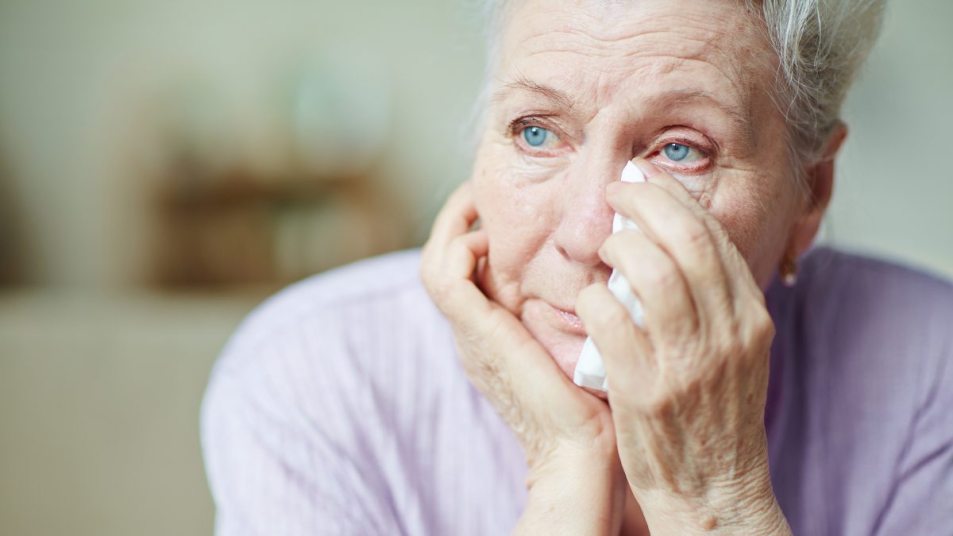You’re Not Losing Your Marbles: Age Discrimination (Ageism) Is Affecting Your Mental and Physical Health
Here's how to recognize and overcome it.

You’re spending quality time with your granddaughter when she cracks a joke about your memory slipping. You’re driving to the grocery store and a car full of teenagers yell out their windows at you, saying you should get off the road. A friend tells you that you shouldn’t wear a shirt with short sleeves anymore, because it exposes your upper arms.
Do any of these experiences sound familiar? If so, you’re experiencing ageism. And it does more than just affect your mood: A study published in JAMA Network Open found that experiencing everyday ageism correlates with poorer physical and mental health.
What is ageism?
The World Health Organization (WHO) defines ageism as stereotyping, prejudice, or discrimination against people or groups of people based on their age.
People can experience ageism at any age. For instance, young adults may be patronized or prevented from making meaningful decisions in the workplace. However, most people who talk about ageism are referring to discrimination against older adults.
What was the study about?
For their study, researchers wanted to know just how prevalent ageism is in the US and whether it’s associated with poor health outcomes. So, they pulled data from a 2019 National Poll on Healthy Aging and focused on 2,035 participants between 50 and 80 years old.
After analyzing volunteer-submitted surveys, the study authors found that over 93 percent of participants regularly experienced some form of “everyday ageism.” (Everyday ageism ranges from stereotypical messages in commercials to negative interactions with other people.) About 81 percent of the volunteers experienced internalized ageism (self-stereotyping and negative self-perceptions on aging), and about 65 percent reported receiving ageist messages.
In addition, 45 percent reported experiencing “interpersonal ageism” — where someone assumes that an older person has trouble using technology, seeing, hearing, understanding, or remembering certain things.
But what about the connection to health? The researchers found that older adults who experienced higher levels of everyday ageism compared to other participants had more health concerns. This was true even after the researchers accounted for participant income, education, and geographic location. (Geographic location is important because of population density. People in urban areas typically have more daily interpersonal interactions, which increases the odds of experiencing ageism. They also view more advertising — on the streets, on public transportation, etc. — which also increases the odds of experiencing ageism.) More specifically, ageism correlated with chronic health conditions (such as diabetes or arthritis), poorer mental health, and symptoms of depression.
Also, those who agreed with this statement — “feeling depressed, sad, or worried is a part of getting older” — tended to have the highest number of chronic health conditions. They were also the most likely to agree that they had poor mental health.
Why might ageism affect your physical and mental health?
“Physical and mental well-being are interrelated,” Dr. Meghan Marcum, Chief Psychologist at A Mission For Michael Healthcare, tells Woman’s World. “Stress is one of the main contributors to [poor] physical and mental health. Stress can lead to increased anxiety, insomnia, irritable mood, decreased immune function, and heart trouble.” So, if ageist comments or experiences cause you stress, your health may suffer.
“Another example is pain,” Dr. Marcum adds. “When we are in pain because of a physical ailment, it has a direct effect on our mood and mental health. These factors can be multidirectional, meaning either one can influence the other.”
What can you do if someone says something ageist to you or a friend?
“Ageism, unfortunately, is relatively common and sometimes people make comments, like ‘having a senior moment,’ without recognizing the potential harm,” says Dr. Marcum.
What should you do if someone makes an ageist comment? “The first step is to speak up when you hear something that could be interpreted as discriminatory,” advises Dr. Marcum. “Ask, ‘what did you mean by that?’ This allows the person to either clarify or recognize their comment was inappropriate and hopefully apologize.
“You can also try saying the same comment back to the person. For example, if someone says, ‘You look great for your age,’ you could say, ‘Thanks, you look great for your age, too.’ This may help the person recognize the context of their statement.”
How else can you overcome the negative effects of ageism?
It’s not always easy to let comments roll off of you like water from a duck’s back. But there are several things you can do to reduce your exposure to negative messaging and boost your mental health:
- Set a limit for how much time you spend on your phone. Adults in the study who spent more than four hours daily on social media reported experiencing more everyday ageism.
- Exercise daily. Dr. Marcum believes that a walk around the neighborhood with a friend, for example, has great benefits for your mental and physical health.
- Volunteer time with an organization that is meaningful to you. Dr. Marcum says this activity helps to refocus energy on the important things in life, and it will give you purpose.
- Spend time with people of all age groups — even if you feel intimidated by younger people. Meaningful connections transcend age barriers, and your true friends and loved ones will not judge you by the number of candles on your birthday cake. (If they do, you can gently but firmly correct them.)
- Engage in stress-relieving hobbies. These may include painting, dancing, reading, or doing the daily crossword.
And finally, as Dr. Marcum suggests, “Be proud of your age and your accomplishments.” Find moments in the day to remind yourself of your achievements, big and small. Age isn’t just a number — it’s something in which we should take pride.












